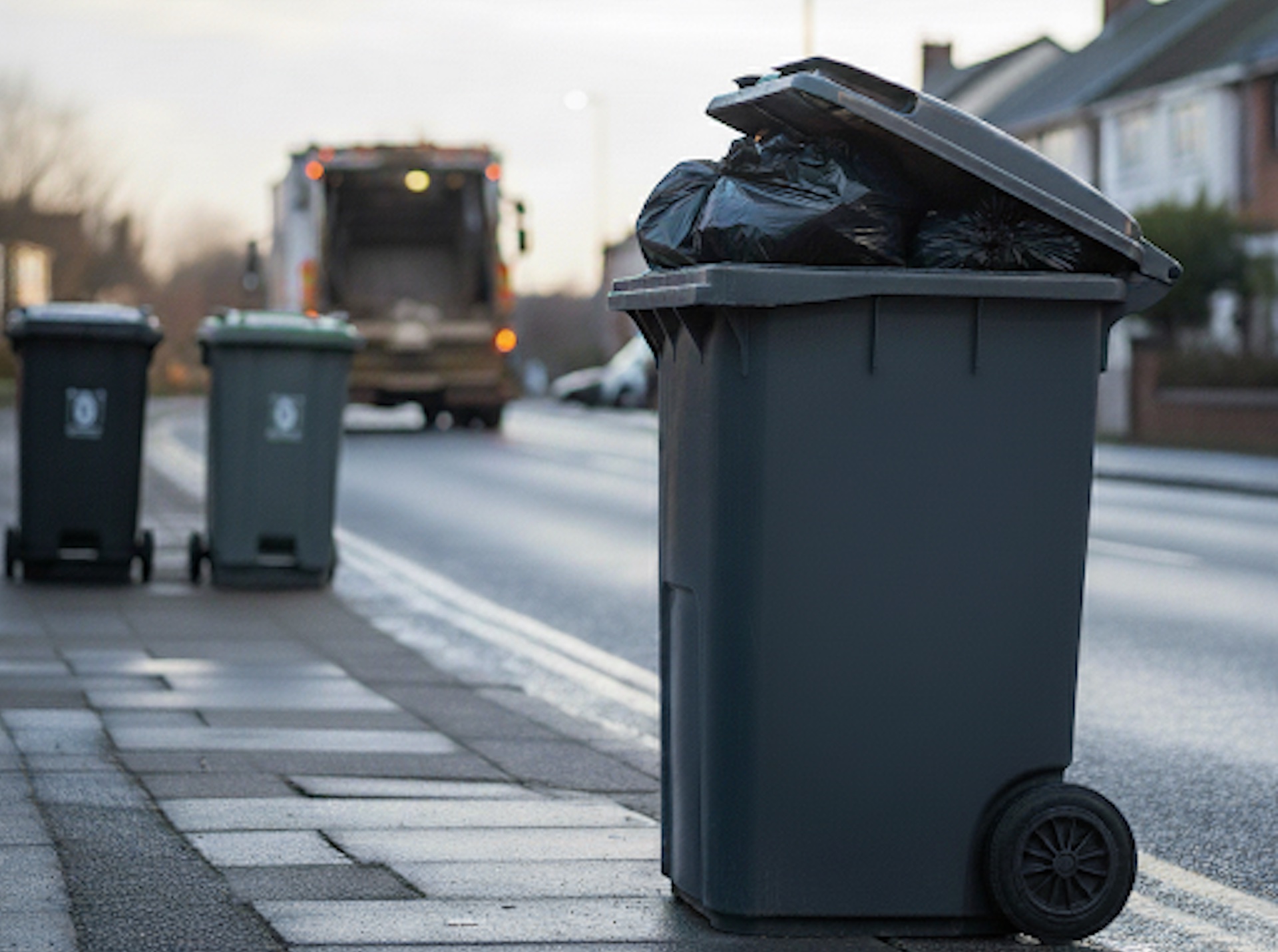Lancashire councils urged to adopt three-weekly household waste collections
Lancashire County Council modelling identifies £6 million potential savings through extending waste collection intervals, pushing district councils to consider three-weekly collections ahead of local authority restructuring
 Lancashire County Council is encouraging its 12 districts to move to three-weekly general waste collections as part of a strategy that could deliver £6 million in annual savings.
Lancashire County Council is encouraging its 12 districts to move to three-weekly general waste collections as part of a strategy that could deliver £6 million in annual savings.
David Whipp, Leader of the Liberal Democrat Group on Lancashire County Council and leader of Pendle Borough Council, told the Local Democracy Reporting Service that the proposal was being "pushed quite hard" by Lancashire County Council.
Last week, a letter from Lancashire County Council chief executive Mark Wynn was sent to counterparts across the county, requesting "initial responses" to collection modelling work shared with the authorities in July.
His letter added that while “a significant proportion” of the expected savings generated by any remodelling would be realised by the county council in its capacity as waste disposal authority, there was the potential “to explore how these benefits could be shared amongst all councils”.
He suggested now is the opportune time to implement changes ahead of a government-ordered shake-up that will see Lancashire's authorities replaced with a smaller number of new bodies responsible for both collection and disposal across larger areas.
The county processes and disposes of waste, while the current district councils manage kerbside collection, with each authority currently making its own arrangements. 11 districts operate fortnightly collections for both general waste and recycling on alternating weeks. Ribble Valley Borough Council remains the only Lancashire authority collecting non-recyclable, household waste weekly.
The nearby unitary authorities of Blackpool and Blackburn with Darwen also operate fortnightly alternating systems, but Blackpool Council agreed last month to move to three-weekly collections of general waste from spring 2026.
Cllr Whipp argues that this shift is at the “completely the wrong time”. While he accepted that the change may eventually prove inevitable as a way of boosting recycling rates, he added that the overhaul would prove “deeply unpopular” with residents.
Preparing for government-mandated changes
Other regions have reported improved waste management through implementing three-weekly collections. North Somerset Council has extended collection intervals, a move estimated to create annual savings of over £1 million to fund other core services.
Mid Devon District Council has also implemented three-weekly collections after a successful trial in 2021, which achieved recycling rates of 68 per cent, and a 41 per cent reduction in household waste.
Lancashire County Council acknowledged that implementing new collection arrangements may be "disruptive and sensitive". However, Wynn insists the proposed shake-up would "ultimately support a smoother transition" to new council configurations and "help to introduce more consistency and standardisation in how services are delivered – accepting that there will always be some local subtleties".
The government has ordered councils across the country to start collecting food waste from households from the end of March 2026. Lancashire County Council plans to refurbish equipment at Farington Waste Recovery Park using anaerobic digestion to process an estimated 40,000 tonnes of food waste annually. The £2.5 million investment is estimated to save an additional £6 million per year through electricity generation from the process.
A Lancashire County Council spokesperson said: "Changes to waste collections are being driven nationally, starting with the introduction of weekly food waste collections next year. Several options have been modelled which aim to improve recycling rates across the county and deliver value for money for residents. But ultimately it will be up to each waste collection authority to decide what works best for them."





